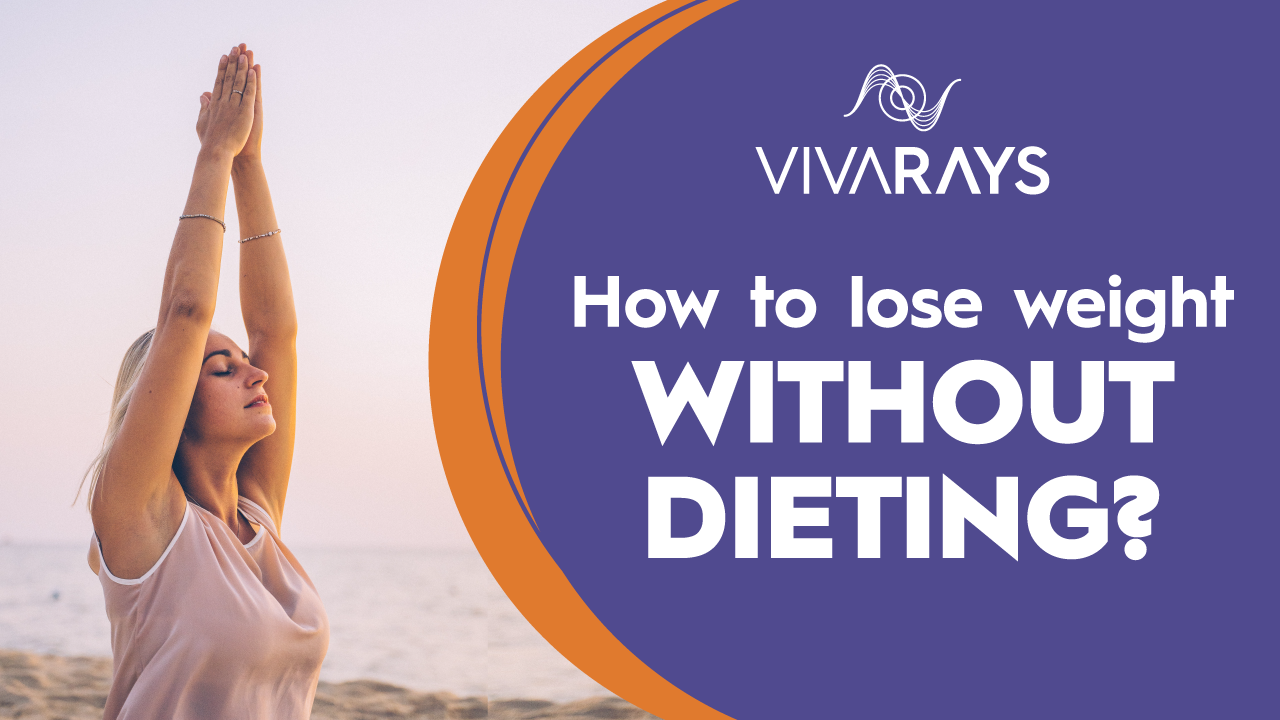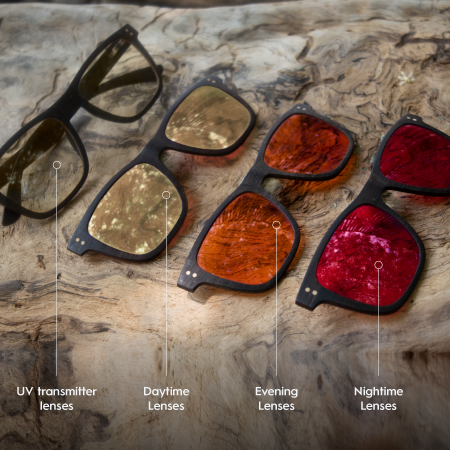How to lose weight without dieting?

It's well known that obesity and metabolic dysfunction are now endemic in industrialized countries like the US.
Two-thirds of the American population is overweight, and about 85% have at least one sign of metabolic dysfunction despite the billions of dollars spent on health care.
If only people would eat healthier foods and exercise more, right?
Unfortunately, It's far from that simple
Three of the most important but under-discussed aspects of metabolic health are leptin, insulin sensitivity, and cortisol management.
Leptin Hormone & Weight Loss
Leptin is the hormone of energy regulation in the body. It controls appetite, food intake, body weight, and metabolism. It also has an impact on every other hormone in your body.
Leptin is found in the subcutaneous fat (the layer of fat right under your skin), and its primary function is to tell your brain the amount of energy available.
It can only enter the hypothalamus in the brain at night when it's dark.

Since most humans live indoors and are exposed to artificial light after the natural light from the sun is no longer present, this mechanism becomes dysfunctional after months or years of circadian rhythm dysregulation.
When you are constantly under artificial light, especially at night, and don't get enough sunlight, inflammation increases, and you become resistant to the leptin signal.
What's the downstream effect?
Leptin is like the fuel gauge in your car. Imagine it is broken. You cannot know how much gas is left in your vehicle. So every time you take your car, you're going to put some gas in it to ensure you have enough fuel to travel to where you want to go.
It's the same thing when you become leptin resistant. Your body cannot know how much energy is available, so it makes you eat more than you should to ensure you'll have enough resources for survival.

It also downregulates your metabolism to make sure you keep on enough resources (i.e., fat) for future needs.
If you are leptin resistant, your liver can't transform the vitamin D your skin makes from exposure to the sun into the active form of vitamin D.
So your immune system won't be able to function correctly. You won't be able to fight off infection and inflammation as well as you should. Since leptin impacts every other hormone in the body, your thyroid and sex hormones won't work correctly.
Leptin resistance also blocks the action of the satiety hormone incretin, which causes you to eat more, and causes low dopamine levels.
Low dopamine levels lead to more cravings, sugar addiction, low libido, low energy, loss of motivation, and eventually depression.
You can look healthy and have leptin resistance. It typically occurs 5-7 years before insulin resistance shows up.
Insulin Sensitivity & Weight Loss
Insulin is the hormone responsible for blood glucose control. When you eat carbohydrates, your digestive tract breaks down food, and glucose gets absorbed into your bloodstream. Your blood glucose rises, and insulin gets secreted by your pancreas to allow glucose to enter your cells to be used as fuel.
The common wisdom is that if you eat too many carbohydrates, your pancreas secretes insulin in huge quantities, and over time you develop insulin resistance, leading to diabetes, inflammation, obesity, and hormonal and neurological problems like Alzheimer's.

Recent findings from quantum biology and circadian rhythm research have shown that it's not just carbohydrates that raise insulin. Artificial light, especially at night, does this as well.
For the same amount of carbohydrates, your insulin and blood glucose levels will go higher if you eat under artificial light than if you consume them outside in natural sunlight.
We are designed to eat under the sun.
Frequent spikes of insulin and blood glucose caused by either regular carbohydrates consumption or blue light exposure or both will make you insulin resistant.
If your insulin and blood glucose are constantly elevated, your body won't be able to access your fat stores to use as a fuel source, and burning fat will be impossible.
Cortisol Management & Weight Loss
Every time stress or inflammation is present in the body; cortisol gets released to deal with it.
In times of acute stress like physical trauma, it helps to deal with the injury and brings us back on our feet.
The problem arises when cortisol is elevated for a prolonged period of time.
What triggers high cortisol levels constantly?

Blood sugar issues (think insulin resistance as we saw earlier), stealth infection, emotional stress, and junk light!
The solar spectrum varies in frequency and temperature during the day. Morning sun exposure is designed to wake us up and create a cortisol awakening response (the blue light in sunlight is partly responsible for this).
It's the peak of our cortisol release during the day. That's where it should be at its highest. This peak tells our brain that the day has begun and that it's time to wake up and move.
At sunset, blue light frequencies drop in the solar spectrum, and this change indicates to our brain that it's time to switch from cortisol to melatonin release to calm us down, make us go to bed, and enhance the quality of our sleep.
One of the roles of cortisol is raising your blood glucose levels to ensure your cells have enough fuel to deal with the different stressors in your life.
Thus, chronically elevated cortisol leads to high blood glucose levels, which over time causes insulin resistance. When insulin is elevated, lipolysis is inhibited.
Lipolysis is the process where your body empties your fat stores to use its content (i.e., fatty acids) as a source of fuel.
That makes what most people call "fat-burning" impossible.

We know that artificial light (which contains a lot of blue light) at night stimulates the suprachiasmatic nucleus (an important center in your brain behind your eyes), which signals the autonomic nervous system to increase cortisol production.
Over time, you develop what is known as pregnenolone steal syndrome where pregnenolone (the mother of all sex hormones) gets diverted from its normal bilateral pathway where it can create either cortisol or sex hormones to creating only cortisol.
Why would your body do that?
You need cortisol to survive short-term in times of stress (think bear attack or famine), but you don't need sex hormones since reproduction takes a back seat to fight or flee.
Leptin, insulin and cortisol are impacted by the light you are exposed to. Artificial blue light alters your hormones and neurotransmitters, increases inflammation, disrupts your circadian rhythm, and destroys melatonin, making it harder to maintain optimal weight.

Most people know that melatonin is the hormone of sleep, but it's produced in your body in response to sun exposure during the day. After a couple of hours of darkness at night, it gets released into your bloodstream and induces sleep.
Melatonin is not only responsible for sleep quality but is also a potent antioxidant, anti-cancer, and anti-inflammatory molecule.
Exposure to artificial light at night robs you of melatonin's healing benefits.
What can you do to overcome?
- BLOCK ARTIFICIAL LIGHT AT NIGHT: Wearing blue light-blocking glasses after sunset mimics the drop in blue light that occurs in nature. This ensures that your body's circadian rhythm is maintained and allows your cells to function optimally.
- EAT WITH THE SUN: The best way to preserve leptin and insulin sensitivity and optimal levels of cortisol and melatonin is to eat when the sun is out, expose yourself to sunlight during the day and wear blue light-blocking glasses after sunset.
You'll be able to sleep deeply and get the necessary rest for the next day.
Diet and exercise are still important in a healthy lifestyle, but our light environment needs to be optimized to thrive.




Leave a comment